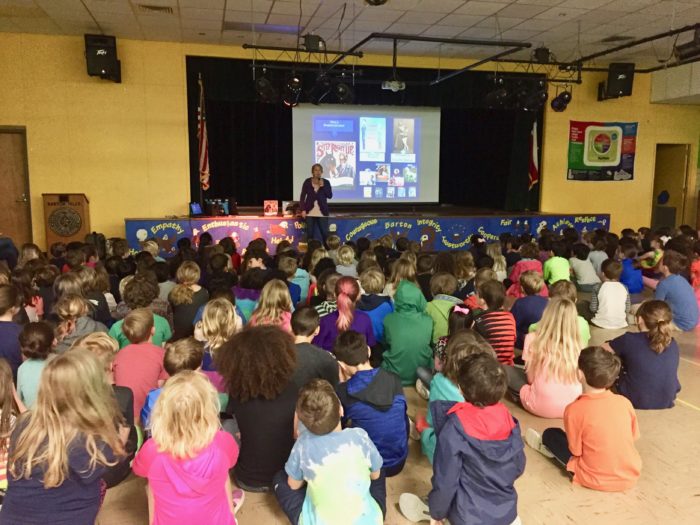
Click to download a photo-free PDF of this article
School author visits can be fun and enlightening, and studies have shown that they inspire students to read and write more. Meeting a “real live author” is like Dorothy pulling back the curtain to meet the Wizard behind the world of Oz. But organizing an event that runs smoothly requires preparation. Whether you’re a school visit veteran or a first-time organizer, this step-by-step guide is for you:
1. Know what you want: Every school’s student population and objective is different, so it’s important to consider what kind of author visit would be most beneficial. Maybe your goal is to host a storyteller, or the author of a popular book or series. Or maybe, after feedback from classroom teachers, your goal is to connect with an author who can support the curriculum in an inspiring way (ie: writing and revision process, research, essays, biographies, STEM, social-emotional topics, kindness, writing workshops, etc.).
Tip: If you are not the librarian or media specialist, please involve them.
2. Clear the visit with the appropriate administrator: Usually, that’s the school principal, but every district and campus has a different protocol that should be followed. In addition to discussing objectives, this is the time to discuss budget limitations.
3. Paying for an author visit: Speaking of budgets, funds for author visits often come from PTAs, school budgets, special fundraising efforts, benefactors, or grants. Before you reach out to authors, know how you will pay their honorarium and travel expenses. Here’s a list of grants and fundraising ideas.
4. Identify the right author(s) for your school: Not all authors are dynamic and kid-friendly speakers, so do your homework.
• Seek recommendations from other library professionals.
• Consider local authors (They are generally less expensive.)
• Check out the authors of popular books in your library.
• Peruse publisher websites. They often have helpful info about their authors’ school visits.
• Peruse author websites.
• Identify a genre or topic that is timely for your school, then search related books.
• Get a feel for authors featured at conferences or in interviews.
• Consider authors featured in reviews, best-of lists, and awards lists.
• If a subject-matter expert is on your wish list, there’s an author for that.
• The Society of Children’s Book Writers and Illustrators (SCBWI) Speaker’s Bureau
• Booking agents who handle scheduling and administrative tasks for a handful of authors. A quick internet search will reveal a number of booking agents.
5. Know how many presentations you want before you contact an author: Are you aiming for a full-day visit (usually 3-4 presentations), a half-day visit (usually 2 presentations), a single presentation, or a large assembly-type visit? Virtual or in-person?
Tip: To ensure a deeper connection between the author and students, and to accommodate developmental stages, consider splitting presentations by age ranges. For example, grades K-2, 3-5, 6-8, etc.
6. Identify your ideal timing: Between holidays, school-wide events, and state testing schedules, schools are busy, busy, busy. So are authors, who often juggle day jobs and writing deadlines with author visits. Plan in advance and offer a range of dates.
7. Reach out to your preferred author: Don’t be shy or nervous. Authors LOVE hearing from library champions and educators! Provide the following information in your email to avoid back-and-forth questions:
• Your preferred range of dates
• Whether you’re looking for virtual or in-person presentations
• Where your school is located (especially important for in-person visits)
• The number of presentations and for which grades
• Any additional request for the event day, such as a family literacy night, PTA presentation, a meal with the staff, etc.
• If the author lists their presentation topics on their website, mention your preference or propose a customized topic.
• Ask for their honorarium, including travel expenses.
Tip: If the author’s honorarium is out of your budget, ask if there’s any wiggle room. Sometimes, authors can adjust their rates to accommodate schools. If your first-choice author doesn’t work out, thank them for their time, then move on to your next choice, or ask the author for recommendations.
Pro Tip: Consider coordinating with other schools in your district to “share” an author on consecutive days, thereby splitting any travel expenses. Sometimes, authors will also reduce their per-school honorarium because back-to-back visits are more time efficient for them.
8. Your author visit is booked. Now what? Yay, your author is lined up! Notify all involved teachers and put the event on your school calendar in permanent ink. You might even want to alert the local media. You will likely receive a contract/agreement from the author, specifying expectations and financial details. Sign and return it as soon as possible. If your district requires a specific contract, let the author know asap.
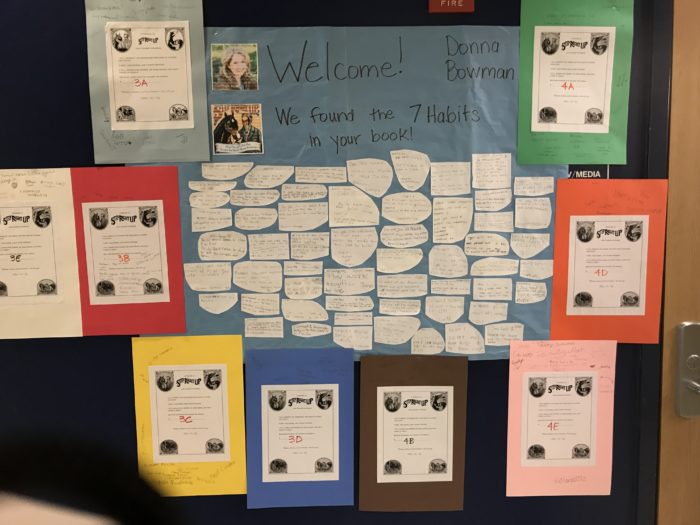
I frequently see hallways full of messages, artwork, and kindness pledges.
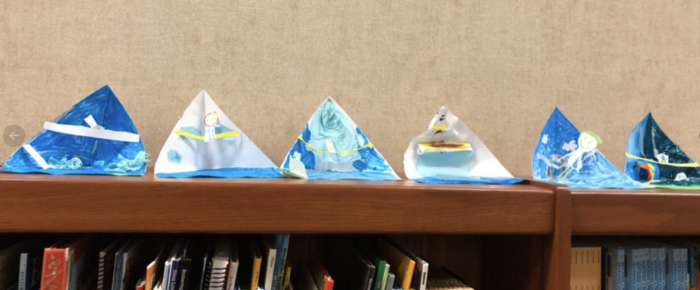
Art and dioramas of King of the Tightrope
9. Prepare the students and teachers: The hard truth is, if students don’t know who the author is or what they write, they will not be invested during the author’s visit. Here are some ideas for nurturing the author-student connection while getting readers excited during the weeks leading up to the impending event:
• Read the author’s book(s) with the students. This makes a world of difference!
• Encourage art and craft projects, readers’ theaters or role-playing, book-inspired writing projects, fundraising efforts, letters to the author, school decorations, welcome signs for the author, etc.
• Encourage each student or each class to narrow down 2-3 questions for the author.
• Book sales (optional but encouraged): Signed books are fabulous souvenirs for students. Send pre-formatted book order forms home with students 4-6 weeks in advance. Order the books from your preferred retailer or directly from the publishers. (Note: Schools often get a discount! Also, order extra books for those late orders.)
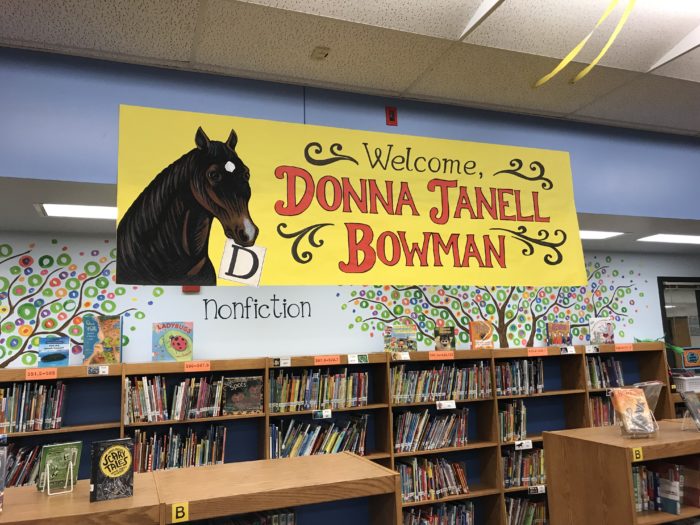
10. Details to clarify with the author in advance:
• Most authors are fine with still photos, but you need to ask permission for audio or visual recordings.
• Virtual: If the presentations will be virtual, which platform will be used? Be sure to test it with the author the day before the event.
• In-person: In which room will the author’s presentations take place?
• If the author is bringing a PowerPoint-type presentation, will it be on a USB/flash drive, on their hard drive, in Google Drive or Dropbox, or other? (Ideally, they’ll have it in multiple media)
• Will the school provide a computer, or will the author be using theirs?
• Will the author use their own clicker, cords, dongles, etc.?
• Will the school provide a microphone?
• What screen will the school make available: projector, smart board, large TV, etc?
• Will the author need a table, chair, whiteboard, paper flip chart, or anything else for their presentation?
• How much performance space will the author need in front of the audience?
• Notify the author of traffic or parking concerns. If you want to make them smile, reserve a parking spot just for them.
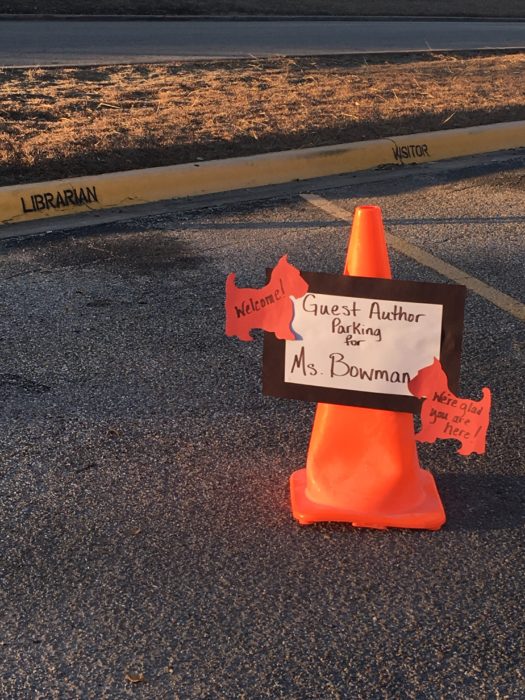
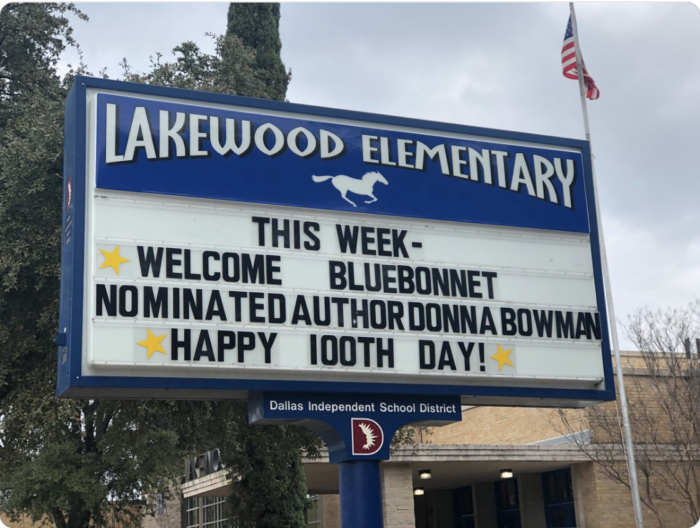 11. Schedule the day: It’s helpful to share an itinerary with the author in advance.
11. Schedule the day: It’s helpful to share an itinerary with the author in advance.
• For virtual visits, they’ll need to know when and how to log in for each presentation, and which educator(s) will monitor online behavior.
• For in-person visits, they’ll need to know where to park, the times of their presentations, and whether you will be providing lunch. Please allow at least 15 minutes between presentations to allow student groups to exit and enter, and to allow the author to catch their breath.
12. The big day arrives: Let the fun, friendship, and inspiration begin! Here are some final tips for in-person visits:
• Most authors will arrive early to ensure that technology works. Once everything’s set, get to know this wordsmith. Authors are kind and down-to-earth folks!
• Let the author know what the school’s quiet signal is for the students.
• Come up with a timekeeper agreement. It can be helpful and efficient for authors to have a 5 or 10-minute heads up as the presentation time winds down.
• Provide water if the author doesn’t bring their own.
• Time is precious, so instruct teachers to have the students seated BEFORE each presentation’s start time.
• Require that teachers stay. Many authors incorporate curriculum that supports teacher efforts, so the teachers need to know what the students are learning. Of course, teachers help deter behavior issues, too.
13. After the author’s visit, your students will be inspired and full of ideas. Get them writing as soon as possible. Give them time to free write or encourage letters to the authors. Writing should be fun.
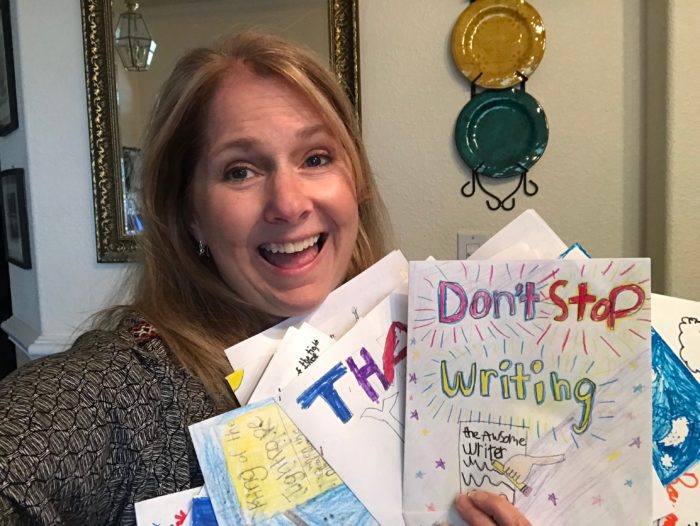
14. At the end of your author visit day, compliment the author on what went well, and offer constructive feedback that could elevate their presentations even more. Authors always strive to improve.
15. As you hand the author their payment, ask if they can recommend other authors who would be good with young audiences. You might be surprised by their insight.
Click to download and print a PDF of this article (with only one photo)
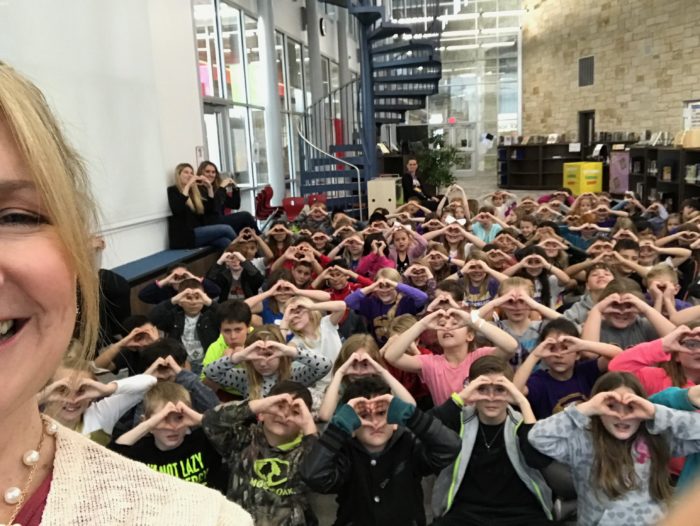
For information about school visits offered by Donna Janell Bowman, click on the Visits & Speaking page of this website. You can reach her through the contact form or by emailing donna@donnajanellbowman.com.

